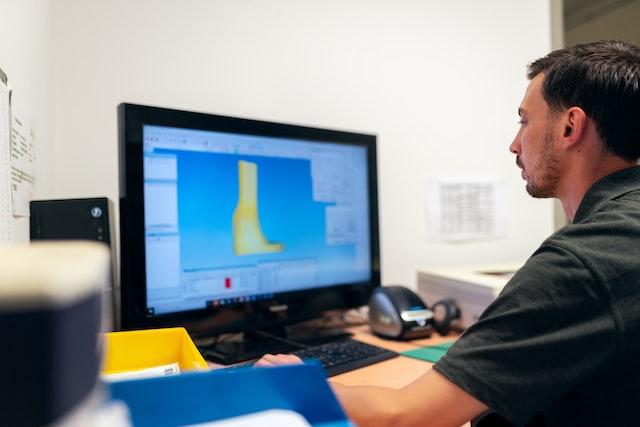Main Responsibilities and Required Skills for Thermal Engineer

A Thermal Engineer is responsible for designing, developing, and maintaining thermal solutions. They perform thermal analysis and identify what can be improved for greater efficiency. In this blog post we describe the primary responsibilities and the most in-demand hard and soft skills for Thermal Engineers.
Get market insights and compare skills for other jobs here.
Main Responsibilities of Thermal Engineer
The following list describes the typical responsibilities of a Thermal Engineer:
Abide
Abide by Health & Safety standards and emphasize their importance to team members.
Adhere to
Adhere to and promote the Hatch corporate safety culture.
Analyze
Analyze data and graph data produced from vehicle level testing activities.
Assist in
Assist in proposal and new business development efforts.
Assist in the development of thermal solutions for aerospace electronics.
Build
Build physical prototype assemblies and characterize them in the laboratory.
Build physical prototype assemblies and instrument those assemblies for testing.
Build test fixtures required to validate thermal subsystems.
Collaborate with
Collaborate with design engineers subsequent test timing for efficient lab utilization.
Collaborate with multi-functional teams for system-level optimization.
Collaborate with vehicle integration engineering to define and refine specifications.
Collaborate with vehicle integration engineering to define and refine vehicle specifications.
Conduct
Conduct aerodynamic benchmarking by vehicle class.
Conduct data acquisition during vehicle level testing.
Coordinate
Coordinate subsystem and component level DVP and DFMEA activities.
Coordinate test activities with 3rd party external laboratories as required.
Create
Create production level solid models and drawings using Creo.
Create simulations reports, test plans, and test reports in professional formats.
Create summaries, and generally detail your efforts to broaden the knowledge of the team and company.
Define
Define and install instrumentation to evaluate thermal system functional attributes.
Derive
Derive conclusions and recommendations based on CAE prediction outcome.
Design
Design and run experiments, process and understand results, and identify paths forward.
Design new thermal solutions in anticipation of and to enable new products.
Develop
Develop subsystem and component level specifications (i.e., sizing heat exchanger).
Develop tools to support concept trade studies and post-processing analysis.
Drive
Drive consistent thermal methodologies, deliverables, and documentation across Business Unit.
Enable
Enable the performance team to achieve product performance.
Ensure
Ensure logistics compliance with regional regulatory requirements where accountable.
Ensure stakeholders are confident of one s intentions as well as those of the organization.
Ensure the execution of shake / drop and shock / vibe studies are executed per ASTM standards.
Establish
Establish thermal design descriptions, thermal modelling and simulations technical reports.
Evaluate
Evaluate and compare competitive data (per market segment) to internal data.
Execute
Execute tests with appropriate equipment (test rigs, fixtures).
Identify
Identify instrumentation equipment required for vehicle testing.
Install
Install required instrumentation and setup data acquisition test configuration.
Interact with
Interact with others in a transparent, honest and authentic fashion.
Interface
Interface multi-functionally and leads team collaboration extending beyond the workgroup.
Interface with supplier base to define thermal system performance.
Lead
Lead and work with cross-site thermal teams for Pony's next-gen autonomous driving system.
Lead defining, driving, and managing thermal development of mobile products.
Lead for defining the methods and procedures for verifying thermal designs.
Lead for the thermal design, modelling and testing for our satellites.
Liaise with
Liaise with Line Managers and project core team.
Manage
Manage and coordinates internal teams performing a work package.
Manage the proposal process for RFPs, EOIs, RFQs, and other formats.
Maximize
Maximize heat transfer efficiency through strategic design of geometry and flow.
Participate
Participate in Kick-off meetings and other major meetings with client.
Perform
Perform spacecraft thermal design and analyses at the board, component, subsystem, and system level.
Perform static and dynamic FEA for design validation using Ansys Workbench Mechanical.
Prepare
Prepare and present CAE reports and results to cross-functional teams.
Prepare and present test reports and results to cross-functional teams.
Prepare design and analysis documentation / report.
Prepare State of Work (SOR) and Statement of Requirements for all Thermal sourcing activities.
Provide
Provide functional or technical oversight to the team and act as an advisor to colleagues.
Research
Research and complete techno-economic assessments of the latest novel technologies in Power.
Review
Review and approve technical deliverables.
Schedule
Schedule and manage peer and cross-functional team reviews of your designs.
Solve
Solve challenging engineering problems and communicate creative solutions to clients.
Summarize
Summarize and correlate data, modify designs, and improve our systems.
Support
Support FEA simulations using Ansys Design Modeler.
Support proposal department in carrying out design and datasheet for prospective jobs.
Support the development of tools to aide in conceptual designs and post-processing analysis.
Support thermal studies across the network to support Zero Defects Strategy.
Support thermal testing of TAS-CH product.
Track
Track record of delivering projects on time and to budget.
Write
Write grant applications and reports to granting agencies.
Most In-demand Hard Skills
The following list describes the most required technical skills of a Thermal Engineer:
Product Development
Analysis
Design
Flotherm
Thermal Modelling
FEA
Icepak
Manufacturing Processes
Analysis SW
CFD Theory
Computer Hardware
Most In-demand Soft Skills
The following list describes the most required soft skills of a Thermal Engineer:
Written and oral communication skills
Interpersonal skills
Problem-solving attitude
Positive attitude
Commitment
Communicate fluently
Reliability
Sense of responsibility
Work independently with little direction
Analytical ability
Highly motivated
Results-oriented attitude
Understand innovation
Work under pressure

